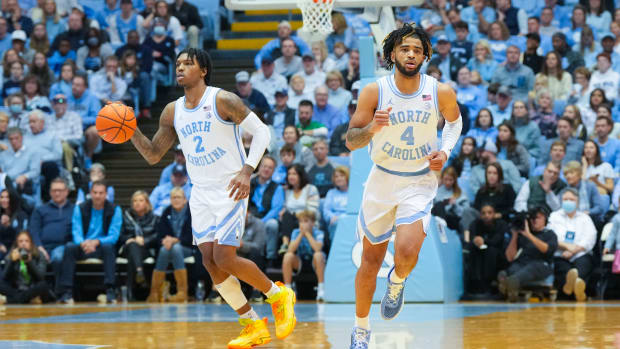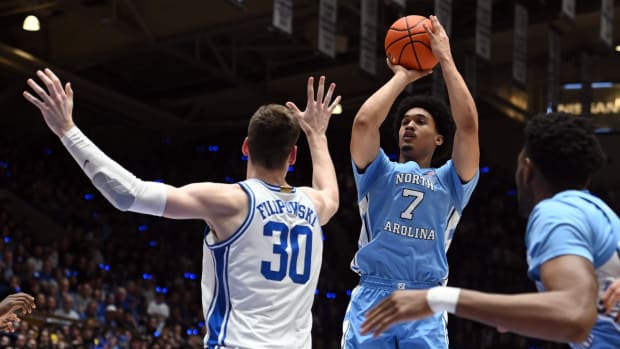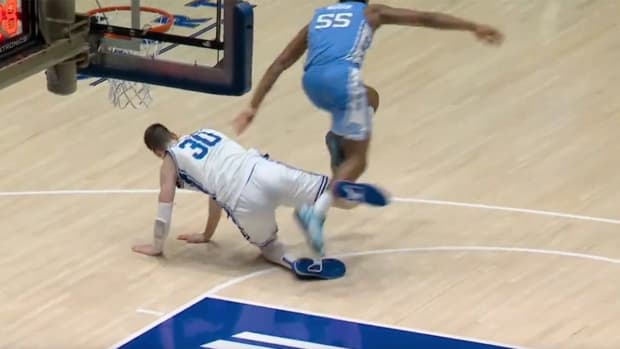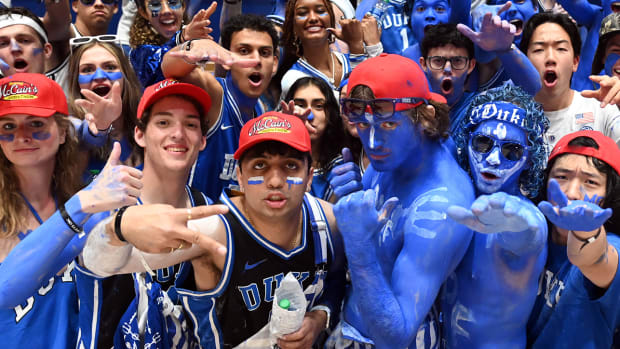UNC's 2019 Season is the Unofficial Penalty Brought by NCAA Investigation
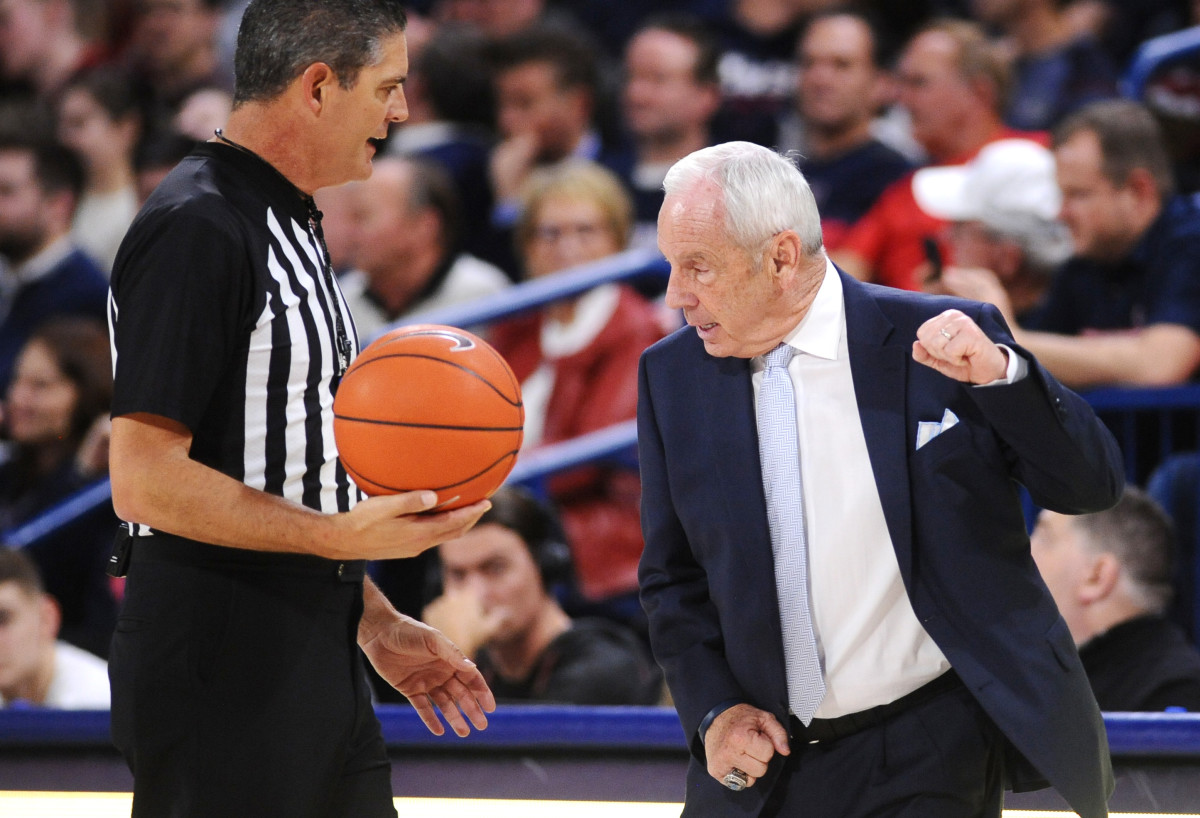
Back in June 2014, the stage was set for the current struggles North Carolina’s basketball program is experiencing.
With the university’s first battle with the NCAA in the past, the Tar Heels had just signed the nation’s 10th-ranked recruiting class, featuring three top-30 players in Justin Jackson, Theo Pinson and Joel Berry.
Instead of sustaining that momentum as one of the nation’s best landing spots for elite talent, the announcement that the NCAA was reopening its investigation of the athletic program dealt Carolina Basketball blows that wouldn’t be fully absorbed for several years.
Add that to a little bad luck, and you’ve got the 6-5 Tar Heels.
The Dip Begins
After making a Sweet 16 run in 2015 behind Marcus Paige, Brice Johnson and a talented group of underclassmen, Carolina should have been an attractive destination for both long-term, program players or a one-and-done star looking to help lift the Tar Heels to a national championship.
Instead, Carolina missed on Brandon Ingram, Jaylen Brown and PJ Dozier. Ultimately, the Tar Heels landed Kenny Williams and Luke Maye – both who were viewed as long-term projects who exceeded their projections.
That wasn’t devastating, because of what the Tar Heels already had on the roster, but it was a sign of things to come as the cloud of the NCAA investigation hung over the program.
The Class of 2016, with three players, ended up 14 nationally, but that doesn’t tell the story of how badly Carolina struggled on the recruiting trail, offering 22 players before signing Tony Bradley, Seventh Woods and Brandon Robinson.
Among the players offered by UNC in 2016 are Udoka Azubuike, currently dominating at Kansas, and Duke forward Javin DeLaurier, who would be a capable rotation player anywhere.
Only Robinson remains on the Carolina roster after Bradley left for the NBA in 2017 and Woods transferred to South Carolina this spring.
Roy Williams often refers to the adage that experienced talent is best, but often, experience can beat talent.
In this case, Carolina didn’t get enough from either in a class that would be seniors this season.
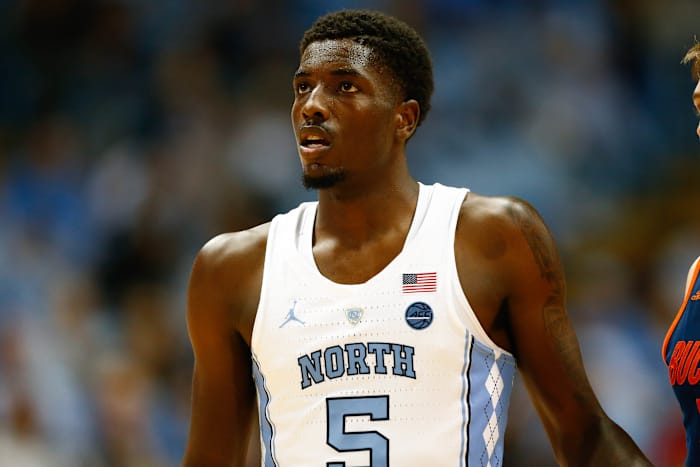
Jalek Felton would have a major role in Carolina's backcourt this season
Jeremy Brevard | USA TODAY Sports
Darkest Before Daylight
Still, Carolina’s recruiting approach led to a runner-up finish in 2016 and national title in 2017, largely because the Tar Heels maximized what has become a market inefficiency in college basketball.
While other elite programs got one-and-done talent, Carolina had great college players that weren’t hot NBA commodities in Marcus Paige, Kennedy Meeks and Joel Berry to go along with other NBA talents that needed time to realize their potential in Justin Jackson.
As the confetti fell in Phoenix, the NCAA cloud was still hanging over Chapel Hill, and not even a national title was enough to persuade the nation’s top players that things would be fine at Carolina.
The five-man class in 2017 was ranked 19 due to its volume, but the 247 Sports average player rating of .9077 was Carolina’s worst in the past six classes. The five players had an average ranking of 167.7 in the class, and that includes 30-ranked Jalek Felton, who left the team during his freshman season.
Take him away, and Garrison Brooks (No. 131) was the top-ranked player, joined by Brandon Huffman (193), Andrew Platek (217) and Sterling Manley (267).
Finally Free
Carolina Basketball was finally let out of purgatory on Oct. 2017, when the NCAA announced it wouldn’t sanction the university’s athletic program.
With Leaky Black (71) and Coby White (25) — both in-state players — already committed, the Tar Heels got their first blue-chip signing of the one-and-done era in Nassir Little (3), landing a class that ranked 13 nationally and second in the ACC with an average player rating of 98.8.
With Little and White making it cool for elite talent to return to Carolina, Cole Anthony (4) and Armando Bacot (27) followed in their footsteps as the 2019 class ranked ninth nationally and second in the ACC with an average rating of 96.73, thanks to the additions of long-time program guys in Anthony Harris (72) and Jeremiah Francis (178).
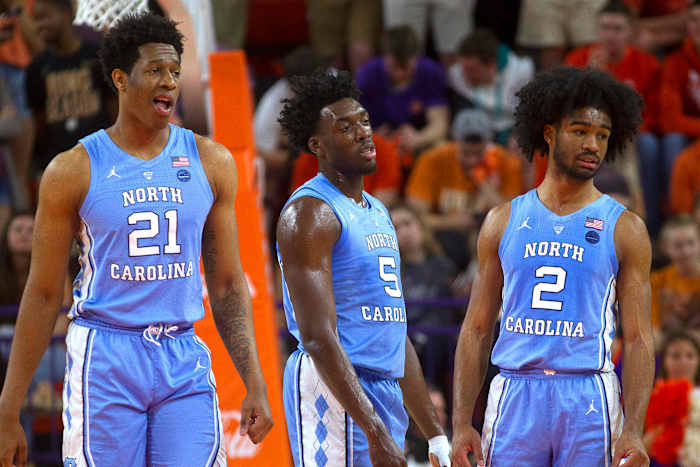
Sterling Manley (21) would have contributed in a thin post rotation this season. (Nassir Little and Coby White might have helped, too.)
Joshua S. Kelley | USA TODAY Sports
Where Did it Go Wrong?
Of the eight players signed in the 2016 and 2017 classes, four remain active on the roster while Manley is recovering from knee surgery, and of those four, Brooks is the only player remaining on the roster that has outplayed his recruiting ranking.
Platek and Robinson are both excellent role players, but both have been forced beyond what they can contribute in playing 46 minutes per game, while Huffman’s game is still developing. When healthy, Manley has shown the offensive touch and rebounding ability that would have made him a major piece of the rotation this season.
Only programs reloading with NBA talent every season can afford to find one starter among its juniors and seniors, and even then, they tend to struggle.
Add to that the loss of Felton and Woods, who would certainly be major backcourt contributors, and Williams is living through a perfect storm caused by the NCAA, injuries and bad luck.
Still, it would be possible for Carolina to overcome the lack of contributions from its upperclassmen if it had gotten a break.
Instead, everything possible has gone against the Tar Heels as White went from a possible early-departure to a lottery pick, while Black has battled one injury after another at Carolina.
All four of this season’s freshmen have suffered various levels of injury setbacks, from Anthony’s current situation to Bacot being hindered by a sprained ankle.
Because of bad luck and the long-term effects of the NCAA investigation, Williams was forced to find two graduate transfers in the spring, assuming the risk of betting Carolina’s hopes on players from low- and mid-major programs making major contributions.
Sure, the Tar Heels won a national title and sure they still managed to get talent as the NCAA investigation rolled on, but those investigations never hit a program at the time of the alleged misdeeds. Whether it’s probation, lost scholarships or postseason bans, it’s always the program’s future that suffers.
Carolina wasn’t officially sanctioned by the NCAA, but the Tar Heels are now suffering their punishment for being left hanging in the court of public opinion for three years.


